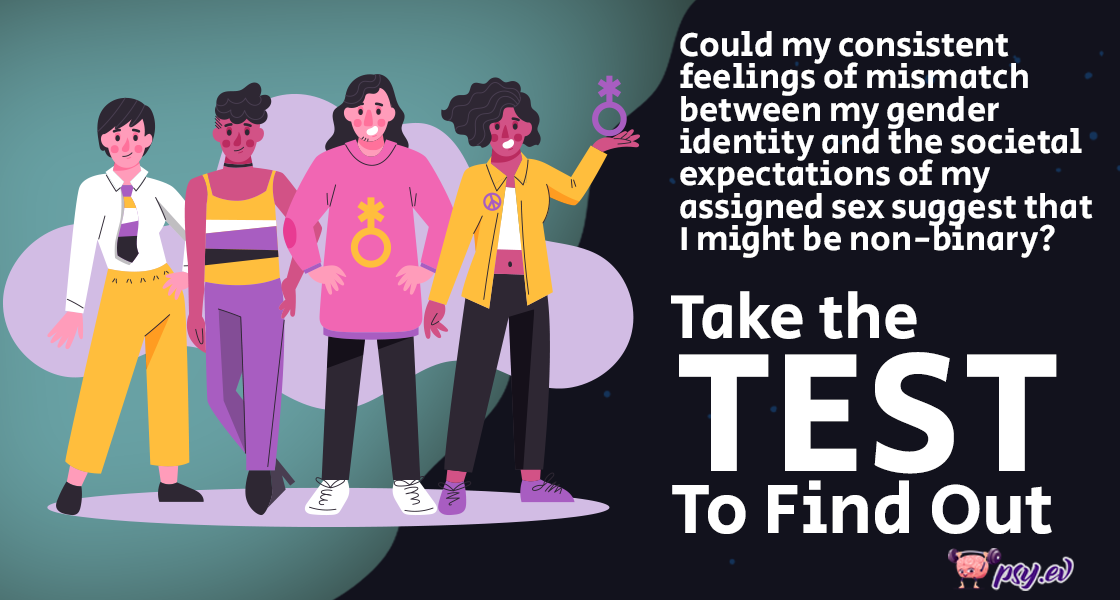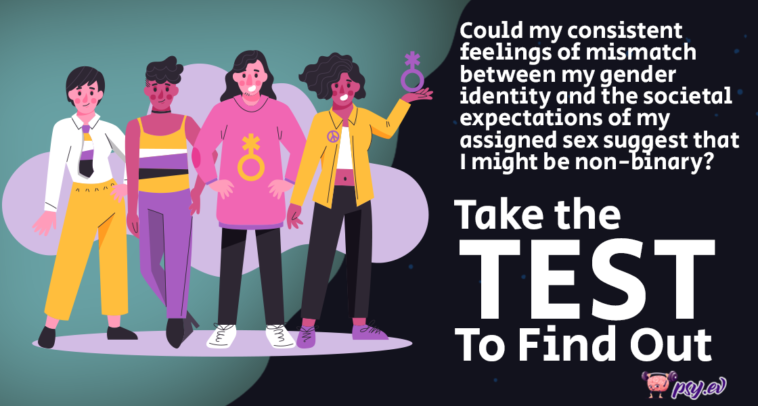The term non-binary describes a person whose gender does not fall into the traditional binary category of gender, male or female. It normally describes individuals who are gender fluid. They may identify as both male or female or none. Keep in mind that non-binary identity relates to gender identity, it’s not related to sexual orientation.
Am I Non-Binary Test: Understanding the Terms
To better understand what non-binary means, it’s important to understand gender binary. The latter is the idea that there are two genders (male and female) and that men are born with male genitalia, whereas women are born with female genitalia. The gender binary is the de facto theory of gender in most cultures worldwide.
Non-binary gender identity contrasts with the gender binary. As a non-binary individual, you may not fit into the traditional definition of male or female genders. The term is typically used by individuals who identify as both male and female. However, it’s also come to define people who don’t identify as either. Today, it’s an umbrella term for diverse gender identities that don’t fall into the traditional definition of gender.
It’s also important to distinguish non-binary from transgender people, as those are not the same. Transgender identity describes a gender other than the one assigned at birth. For instance, a trans man identifies as a man, although they were born female. The gender they identify with is male, part of the gender binary.
That said, trans individuals can also identify as non-binary, but not all non-binary individuals are trans.
Several other terms are closely linked with non-binary identity. These include agender, gender-fluid, genderqueer, bigender, and multigender.
What If You’re Non-Binary?
If the non-binary spectrum test indicates that you identify as non-binary, you may want to explore your gender identity further. Ask yourself if you exclusively feel like a man or woman; if you don’t, you’re likely non-binary.
Being non-binary may not impact your sexual orientation. However, it changes your gender identity and the gender you identify as. If you're ready, you may want to share this information with people close to you.
Fortunately, the acceptance of non-traditional gender identities is growing, so identifying as non-binary may not threaten your safety in many places worldwide. It’s important to surround yourself with people who support you and your gender identity. Similarly, it’s vital to educate yourself on what it means to be non-binary.
In your personal and social life, you may want to gradually introduce people to your new gender identity, which doesn’t conform to social norms.
If you feel confused about your gender identity and feel anxious or depressed, it’s highly recommended to speak to a counselor who specializes in gender and sexuality issues. The gender you feel can be different from your biological gender, which can cause confusion, anxiety, and even denial. Speaking to a professional psychologist or therapist will help you understand and validate your feelings and thoughts about your gender.
The non-binary test is only the beginning of your journey of exploration. Give yourself the time and opportunity to learn about your gender identity and embrace your true self.


